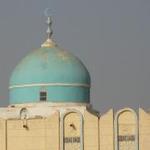Democratizing Islam and Islamizing democracy: An inquiry into Hasan al-Turabi's conception of Shura in light of Western democratic theory
This article explores Hasan al-Turabi’s conception of democracy with particular focus on the role and rights of non-Muslims. This is done through a qualitative analysis of his writings as well as semi-structured interviews conducted with Turabi in 2006, 2007 and 2008. In contrast to earlier studies which discuss Turabi’s ideas in light of Islamic theology and history, I engage with a range of western models of democracy in order to shed a different light on Turabi’s ideas, illustrating the elasticity of the democratic concept itself. Shura is part of an ongoing debate about the foundations of democracy. Hence, my analysis attempts to move beyond the Sudanese context into the realm of democratic theory in order to have a critical discussion of Turabi’s political thinking. My findings suggest that despite its democratic qualities, some aspects of his religious democracy, particularly with regards to the role and rights of minorities, are problematic from a multicultural perspective. The article claims that Turabi performs an internal exclusion of non-Muslims with regards to political affairs, because Islam exclusively sets the condition for substantive participation.
A pre-print of the article can be downloaded as a PDF above.
Liv Tønnessen







